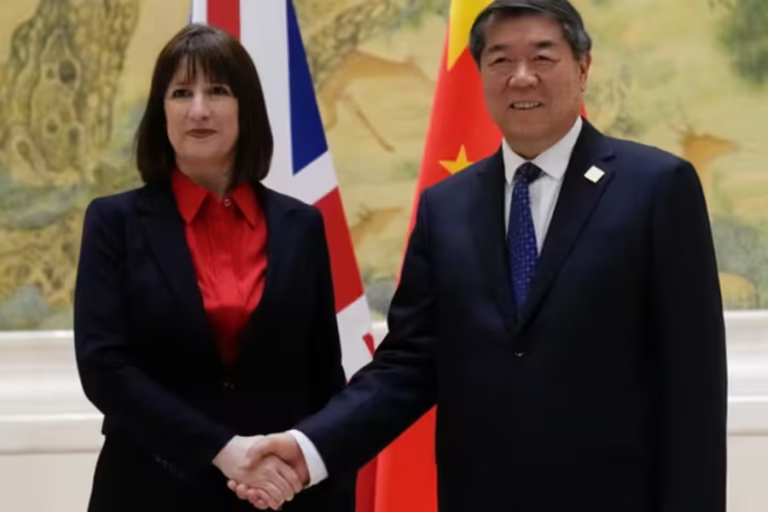In a significant diplomatic maneuver, UK Chancellor Rachel Reeves has sought to bolster economic ties with China amidst ongoing financial instability back home. During a crucial three-day visit to Beijing, which concluded on Monday, Reeves engaged in discussions with Chinese Vice-Premier He Lifeng, heralding a “new era of respectful and consistent future relations with China.” This visit comes at a critical time as Reeves faces mounting pressure to revitalize the UK economy, which has been hampered by rising borrowing costs and the lingering effects of Brexit.
The visit gained heightened importance following a week of turmoil in the financial markets that saw UK borrowing costs nearing a 16-year high. This economic pressure places the Chancellor in a precarious position, potentially necessitating unpopular fiscal measures such as tax increases or spending cuts. Since taking office, Reeves has repeatedly assured that significant tax hikes and a return to austerity were not on her agenda, promises that are now under threat due to the current economic climate.
Reeves’s discussions in China centered on fostering a pragmatic relationship, focusing on “finding opportunities for safe trade and investment” while maintaining a “frank and open” dialogue on areas of disagreement. The outcomes of these talks appear promising, with Reeves announcing potential benefits worth up to £1 billion for the UK economy. This includes improved access for UK financial services to the Chinese market and the lifting of barriers that restricted exports of a range of goods and services to China.
Particularly noteworthy is the expected boost in the agri-food sector, which is anticipated to support UK exports and innovation. With new agreements headlined by-products like pork, wool, poultry, and pet food, the UK aims to enhance trade with China and support new jobs. This is a significant development, especially as exports of British food to the EU have suffered a nearly £3 billion annual drop since Brexit, according to a report by the Centre of Inclusive Trade Policy (CITP).
While economic prospects were a major focus, Reeves also addressed sensitive political issues during her visit. Amid pressure from a group of nine Labour MPs, Reeves raised human rights concerns, including the case of Jimmy Lai, a pro-democracy media mogul and British citizen currently imprisoned in Hong Kong. These discussions underscore the UK’s commitment to addressing complex issues even as it seeks to deepen economic ties.
The strategic pivot towards China reflects the UK’s broader attempt to redefine its global economic relationships post-Brexit. As the UK navigates new economic challenges, including potential global trade wars anticipated under Donald Trump’s presidency in the United States, Reeves’s efforts to secure a stable and beneficial relationship with China are seen as crucial.
However, the path forward is fraught with challenges. Ben Zaranko, associate director at the Institute for Fiscal Studies, noted the difficulty of Reeves’s position, highlighting it as a consequence of “a difficult fiscal inheritance and global economic factors,” as well as “a series of government choices and mutually incompatible promises.” As Reeves navigates these challenges, her actions will be closely watched for their impact on the UK’s economic recovery and her political future.

